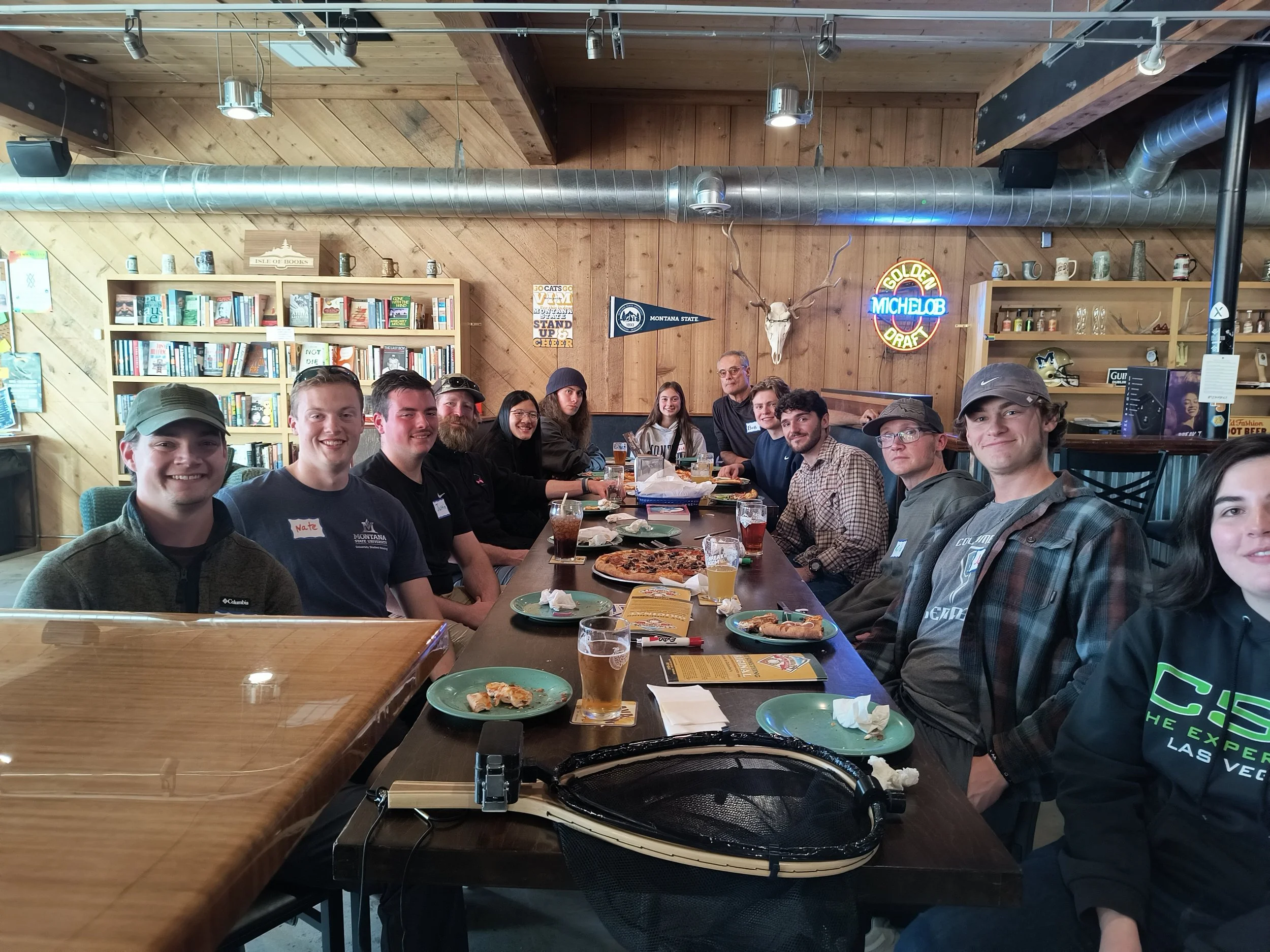MSU Engineering Capstone Pizza Night
Montana State University (MSU) engineering seniors met over pizza at The Breakroom to discuss their capstone projects sponsored by YERC. With pizza in hand to fuel their innovation, students discussed the challenges and nuances of their designs, which include an RFID-enabled fishnet and an autonomous weather-proof drone system, and bounced ideas off each other as well as their mentors YERC founder Dr. Robert Crabtree and Spencer Lawley.
The DIABLO team, or Drone In A Box for Large-scale Optimization, is developing a self-sustaining enclosure, known as a skybox, to house and recharge a Vision Aerial Switchblade Tri-copter drone. The skybox will feature autonomous launching, precision landing, contact charging, weather monitoring, and protection against extreme weather and environmental conditions. Renewable energy sources, such as solar and/or wind, will power the system. Moreover, the skybox and drone will interface with RESOLVE’s TrailGuard AI, an anti-poaching, camera-based security system. When triggered by the trail cam, the skybox will initiate the drone’s mission, but only if the current weather conditions are deemed safe for launch. Once launched, the drone will autonomously navigate to the specified coordinates of the trail cam, deter the predator(s), and return to the skybox, where it will be safely stored and recharged for its next mission. The DIABLO team includes MSU seniors Aleah Williams, Parker Hutchinson, Will Roffey, and Ben Mayer.
The Smart Fishnet team is building on the work of last year’s group, who built a Radio Frequency Identifier (RFID) system that interfaced with a traditional fishnet to scan Passive Integrated Transponder (PIT) tags, used by ecologists to ‘tag’ fish and study fish populations. An RFID reader embedded in the fishnet identifies the fish by its PIT tag when the fish is caught. The goal for this year’s team is to reduce the size of the past system, and store and display the identification of the fish on an android application. In addition to identification, the information collected will include a date, time, and GPS location of a scan and possibly a photo of the captured fish. The Smart Fishnet team, including MSU seniors Cheyenne Sterbick, Nathan Newman, Paul Rupprecht, and Josh Wilson, is working to design this new system to allow citizen scientists to help ecologists collect data without the need for training.
As the year progresses, both teams will innovate their designs, working together to complete their projects and implement them into real-world conservation efforts.

